TAMİFLU’ DAN BERİ HİÇBİR ŞEY DEĞİŞMEDİ
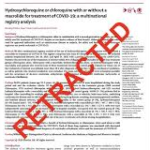
Dikkat: Yazının sonunda ek var!
***
Geçen hafta Lancet ve New England Journal Medicine’ in iki araştırma makalesini yayından çekmesi bilimsel araştırmaların güvenirliliği hakkındaki endişeleri artırdı.
Makalelerin geri çekilme sebebi araştırmalar için elektronik verileri sağlayan Surgisphere isimli şirketin ham verileri açıklamayı reddetmesiydi.
Bu olay bana domuz gribi salgınında oseltamivir etken maddeli Tamiflu isimli ilaçla yaşanan gelişmeleri hatırlattı (1, 2, 3).
O günlerde BMJ’ nin (British Medical Journal) baş editörlerinden Dr. Fiona Godlee, Tamiflu’ nun etkinlik ve emniyetinin tam ve doğru olarak ortaya konması için Roche’ un Tamiflu ile ilgili tüm klinik araştırma raporlarının bağımsız araştırmalar için açıklanmasını istemişti.
Şirket müdürü Profesör John Bell’ e açık bir mektup gönderen Godlee “Halkın milyarlarca lirası Tamiflu’ ya harcandı ama ilacın etkinliğini ve güvenilirliğini gösteren delillere ulaşılamıyor” diyordu.
Godlee’ nin bu mektubu EMA’ nın (Avrupa İlaç Ajansı) Roche hakkında ilaç yan etkileriyle alâkalı 80 bin yan etkiyi uygun şekilde bildirmediği iddiasıyla ihlâl davası açmasından hemen sonra gelmişti.
BMJ, bu bilgilerin açıklanmaması üzerine Roche’ un ilaçlarının boykot edilmesi çağrısında bulunmuştu (4).
İlaçlar olduğundan daha etkili ve güvenli gösterilmeye çalışılıyor
BMJ’ de Jacqui Wise’ nin yazısı (5):
KOVİD-19 ile alâkalı araştırmaların geri çekilmesi yazarlarının “artık birincil veri kaynaklarının doğruluğu için kefil olamayacaklarını” bildirmeleri üzerine gerçekleşti.
Bu olay, veri şeffaflığı ve araştırma bütünlüğü hakkında çok ciddi endişeler yaratıyor.
Nordic Cochrane Centre epidemiyologlarından Tom Jefferson “Tamiflu’ dan bu yana hiç ders alınmadığına” dikkat çekiyor.
Jefferson, British Medical Journal (BMJ) ile beraber şirketlerin domuz gribi salgını sırasında küresel olarak stoklanan iki anti-influenza ilacının (Tamiflu ve Relenza) klinik verilerini yayınlaması için yıllarca kampanya yürütmüştü.
Bir bilim dergisinde yer alan şu satırlar ne kadar acıdır (6):
“Gizli klinik araştırma verileri, doktorların tedavileri güvenle reçete etme yeteneklerini sistematik olarak baltalıyor.
Tıptaki tüm uzmanlık sahalarında yaygın olarak kullanılan birçok ilaç, olduğundan daha güvenli ve daha etkili olarak temsil edildi, insanların hayatlarını tehlikeye attı ve kamu parasını boşa harcadı.”
Bunun üzerine BMJ, Ocak 2013 itibariyle, yazarların ilgili anonimleştirilmiş hasta seviyesi verilerini mâkûl talep üzerine sunmayı taahhüt etmediği herhangi bir ilaç veya cihaz denemesi yayınlamama kararı almıştı (7).
BMJ’ ye konuşan Jefferson “Tarih tekerrür ediyor” diyor ve ekliyor:
2009 yılında gene bu misafir yazarlık, peşin hüküm bildirme ve şeffaflık eksikliği mevzularında insanları uyarmıştık.
Gelelim neticeye
Günümüzde ilaç araştırmalarının büyük bir kısmı o ilacı daha fazla satarak daha fazla kâr etmek amacındaki endüstri tarafından yapılıyor veya destekleniyor.
Bu araştırmaların tüm verilerinin herkese açık olmaması, araştırmaların geri çekilmesi bilime olan itimadı sarsıyor.
Kaynaklar:
4. https://www.bmj.com/content/345/bmj.e7689
5. https://www.bmj.com/content/369/bmj.m2279
6. https://www.bmj.com/open-data
7. https://www.bmj.com/content/345/bmj.e7888
***
EK 1 (19.11.2022): Cochrane reviewer sues Roche for claiming Tamiflu could slow flu pandemic
A UK epidemiologist and Cochrane Collaboration researcher is suing the drug company Roche in the US, claiming that it defrauded federal and state governments by falsely claiming that its antiviral drug oseltamivir (Tamiflu) could be a powerful tool in mitigating a flu pandemic.
Tom Jefferson, a frequent contributor to The BMJ, is suing as a private whistleblower for $1.5bn (£1.1bn; €1.4bn), roughly the amount that US public health authorities spent building up their pandemic stockpile of oseltamivir. The stockpile is still maintained today, though recent purchases have involved generic versions, as Tamiflu’s main patent expired in 2016.
Should Jefferson win, he would be awarded up to 30% of any monies recovered, while the rest would be returned to public coffers.
Jefferson’s Cochrane acute respiratory infections group was engaged by the UK government to undertake a major review of the effectiveness of oseltamivir in 2009, after an outbreak of virulent type A influenza H1N1 made headlines worldwide. The reviewers soon realised that many of their assumptions about oseltamivir rested on papers whose underlying data had never been published. They sought the detailed data of oseltamivir trials from Roche but were refused.
This led to a four year campaign—much of it conducted in the pages of The BMJ—that saw Roche and the European Medicines Agency finally release the detailed data in 2013.
Jefferson’s group studied those documents and reported in 2014.1 The first Cochrane review ever to be based on full clinical study reports rather than journal articles, it concluded that oseltamivir could reduce the duration of flu symptoms and reduce the proportion of symptomatic cases among infected people. But it did not find evidence that oseltamivir reduced disease transmission or lower respiratory complications, citing the poor design of the original studies. These are vital criteria for any pandemic treatment or prophylaxis.
Jefferson is suing Roche under the US False Claims Act, a law dating from the American Civil War, when unscrupulous contractors often sold debilitated donkeys or cartridges filled with sawdust to the US army. Roche’s actions were no different, he argues in his suit.2
Roche “originally produced Tamiflu to meet the demands of seasonal influenza, but was not satisfied with the revenue it produced,” he argues, and “embarked on a fraudulent campaign to convince the United States to add Tamiflu to its Strategic National Stockpile.”
Jefferson told The BMJ, “I’ve spent years working to uncover the truth about the efficacy and safety of Tamiflu. I myself believed what Roche said about Tamiflu’s efficacy early on. But ultimately, as alleged in the complaint, I believe Roche misrepresented that Tamiflu could stop the spread of an influenza pandemic—when the Roche generated evidence doesn’t show the drug can even stop viral transmission, let alone prevent complications or deaths related to influenza.
“Tamiflu can cause significant adverse effects in patients. I brought this suit because I felt so many, including the US government, have been misled by what I allege in the complaint are false statements about Tamiflu’s efficacy for pandemic use.”
A Roche spokesman commented, “The United States Department of Justice (DOJ) filed notice in the district court that DOJ was declining to intervene and take over the litigation following its investigation of the allegations in the complaint. Roche fully cooperated with DOJ’s investigation. Roche has complete confidence in the safety and efficacy of Tamiflu. The company plans to vigorously defend itself against these allegations if Thomas Jefferson decides to pursue the litigation.”
The US government intervenes to take over as plaintiff in about a quarter of whistleblower lawsuits brought under the False Claims Act. But the whistleblower can still recover money for the government even when it does not intervene.
Jefferson’s attorney Clayton Halunen said, “The government’s decision to intervene or not intervene in any given False Claims Act case does not speak to the merits of the case. To insinuate otherwise misrepresents the state of the law. This lawsuit does not focus on the claimed safety or efficacy of Tamiflu when used in treatment of seasonal influenza. It alleges that Roche sold the United States a bill of goods on Tamiflu’s efficacy for use in an influenza pandemic. We fully expect Roche to vigorously defend itself—it has a billion dollar stockpile sale to protect. We are confident in the strength of our case and look forward to deposing Roche executives about the alleged scheme.”
Kaynak: https://www.bmj.com/content/368/bmj.m314
Makale: Cochrane reviewer sues Roche for claiming Tamiflu could slow flu pandemic
***
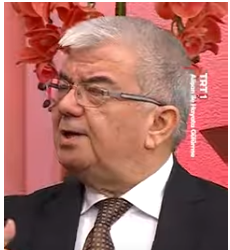
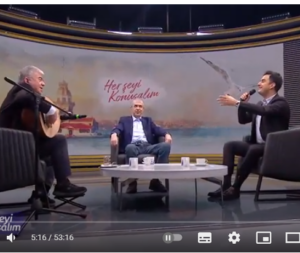


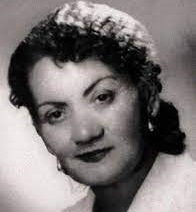



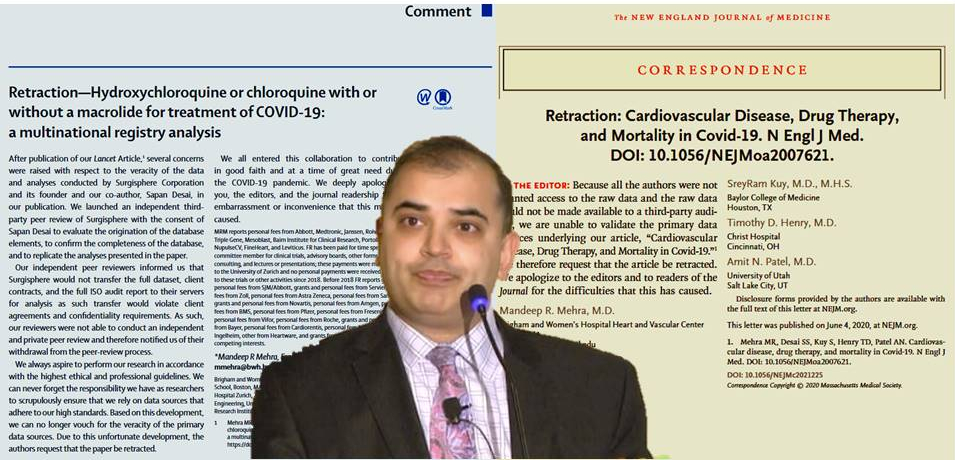


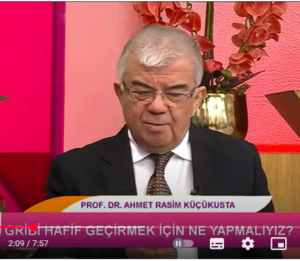
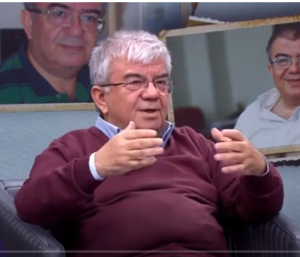
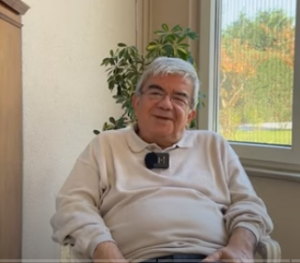
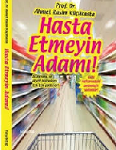

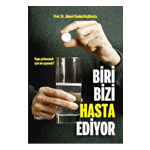
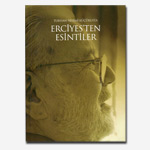

Bu ilaç sanırım Enfluvir ve bizde herkese bu ilaç yazıldı geçen aylarda, kullanmayan kalmadı dense yeri vardır.
Bu işin içinde para hırsı oldukça sonra düzelmesi mümkün değildir. para olmadan da olmaz.
Bir de tıbba güvenin diyorlar iyi de nasıl güvenelim bunların her yerinden sahtekarlık akıyor